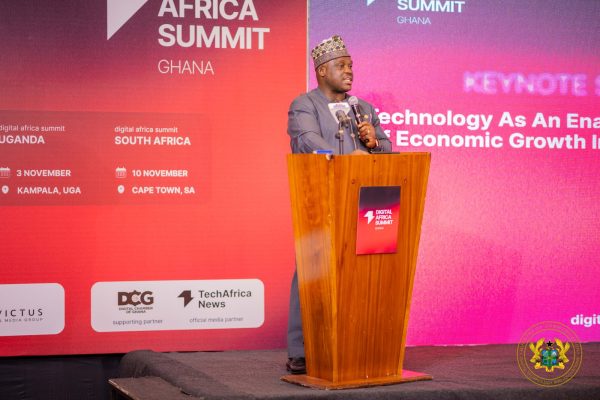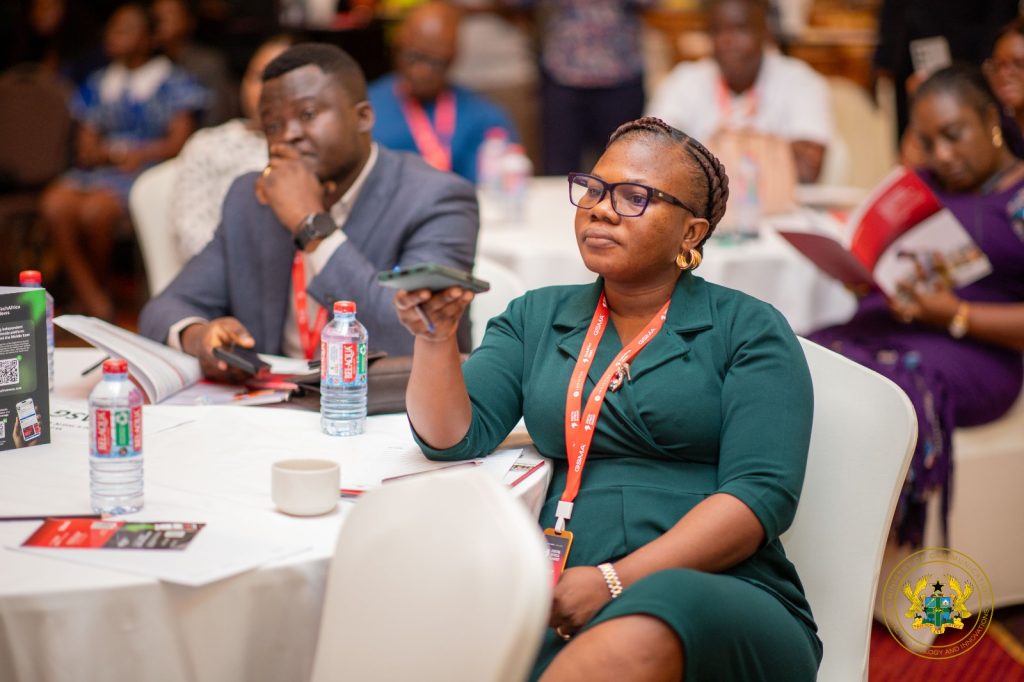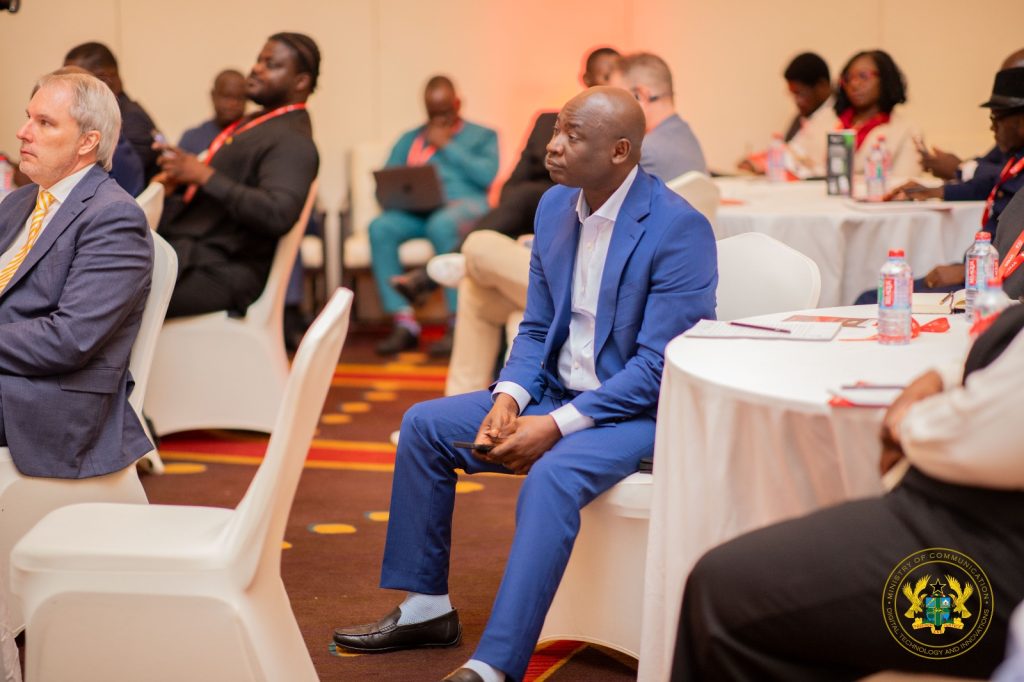
The Minister for Communication, Digital Technology and Innovations, Hon. Samuel Nartey George (MP), has reaffirmed Ghana’s commitment to leveraging digital technology for national prosperity and continental leadership at the Ghana edition of the Digital Africa Summit.
Held at the Kempinski Hotel today (03-09-2025), the event also marked the launch of a crucial digitalization study on Ghana, serving as a roadmap for the nation’s future digital journey.
Hon. George emphasized that Ghana’s full digital potential requires deliberate design of policies, institutions, and partnerships fostering transformative technology for all Ghanaians. He highlighted significant strides in implementing reforms considered best practices across Africa, including releasing additional spectrum, removing the electronic transactions levy, and approving technology neutrality for licensed operators.
He noted that Intentional efforts over the past eight months have expanded internet infrastructure, ensured affordable access, and implemented data cost measures. These decisions have improved competition, lowered costs, and created a more enabling environment for digital innovation, adding, Ghana’s digital economic policy and strategy are anchored on four pillars: infrastructure, skills, trust, and innovation.
According to the Minister, the One Million Coders program received over 90,000 applications, targeting 100,000 young Ghanaians with fresh digital skills by year’s end. “The Ministry has reduced data costs, with MTN bundles increasing by 15% and Telecel and AirtelTigo increasing bandwidth by 10%”, he said.
Hon. Samuel Nartey George highlighted five critical policy areas: connectivity for productivity, skills at scale with gender inclusion, digital finance, robust trust frameworks, and strategic technology procurement. “Despite progress, challenges persist, including high data costs, uneven service quality, and rising cyber risks, with Ghana facing over 6,400 incidents this year”, he noted.
Emphasizing a partnership agenda, Hon. George called upon telecommunication companies, startups, banks, and investors to collaborate in driving inclusive growth, inviting partners to invest, build, teach, and safeguard, transforming bandwidth into business, data into decisions, and code into jobs.


